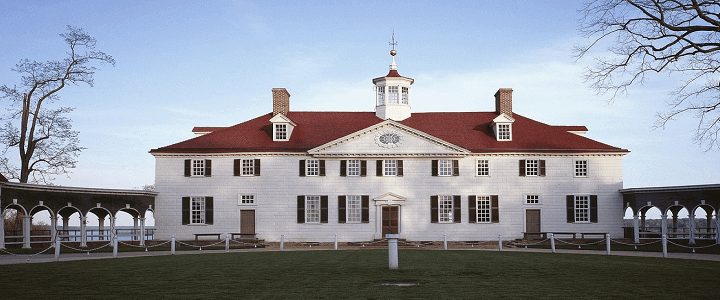Things were busy in my neighborhood on Monday. President Donald Trump took his French counterpart, President Emmanuel Macron, to lunch at George Washington’s Mount Vernon on the first day of Macron’s three-day state visit to Washington, D.C. Macron is visiting the U.S. just a week after French fighters joined American and British planes in attacking Syrian chemical weapons sites. There could not be a more appropriate place for the American and French presidents to celebrate the long history of Franco-American relations than at the estate of the father of the American nation.
While it is popular in many quarters to mock the French for their supposed lack of military prowess, the country has been, with a few notable exceptions, a steadfast ally of the United States.
After declaring independence in 1776, the number-one foreign policy goal of the American Continental Congress was to secure an alliance with King Louis XVI of France. The founders knew that without French assistance, there was little hope of defeating Great Britain on the battlefield. To secure the alliance, Congress dispatched three of the its leading lights — Benjamin Franklin, John Adams, and Thomas Jefferson—to be its first three ambassadors.
French contribution to American independence
American independence would not be possible without the assistance of three men. François Joseph Paul de Grasse, the Comte de Grasse, was a French admiral who led the fleet that sealed of the escape route for British General Charles, Lord Cornwallis at Yorktown. Jean-Baptiste Donatien de Vimeur, the Comte de Rochambeau, led 7,000 French soldiers on a march from Providence, R.I., to Mount Kisco, N.Y., where he joined elements of the Continental Army to march towards Yorktown—a route, incidentally, that took him past Mount Vernon.
And most important of all, Gilbert du Motier, the Marquis de Lafayette, the French nobleman who came to America at the age of 19 to do his part for American independence, was, alongside his friend Alexander Hamilton, one of Washington’s most trusted aides. Congress gave the young Frenchman a commission as a Major General, and he was subsequently wounded at the Battle of Brandywine, after which he was given command of a division despite being a foreigner. Returning to France in 1779, Lafayette was instrumental in securing the expedition of de Grasse and Rochambeau.
Lafayette remained so popular in the U.S. that several cities were named in his honor, the first of which, Fayetteville, N.C., home of the Army’s Fort Bragg, remains one of the nation’s most important military communities.
The Enduring Franco-American Alliance
Lafayette’s influence on America was such that Col. Charles Stanton, an aide to American Expeditionary Force commander Gen. John Pershing, declared in a 1917 Paris speech, “Lafayette, we are here!”
Despite the immeasurable contributions of de Grasse, Rochambeau, and Lafayette to American independence, Americans think of the French military, they consider the stalemate of the First World War, the complete inability of the Maginot Line to stop the 1941 German invasion of France, and the French withdrawal from NATO in the 1970s.
This shortsighted response, bolstered by France’s decision not to participate in the 2003 invasion of Iraq, does the French a disservice. Since the early days of Operation Enduring Freedom, the French Army, particularly its special forces, have played a vital role in Afghanistan, both as a member of the anti-al Qaeda coalition, and as part or the NATO International Security Assistance Force.
French actions in Spin Boldak, on the Afghan-Pak border south of Kandahar, were a key contribution to keeping open the main supply route from the port of Karachi into Kandahar, and stemming the flow of al Qaeda and Taliban militants across the border in the region.
Whatever George Washington might have thought about Trump as president, he would no doubt be pleased to know that his home played host to the president of his country’s oldest ally.




